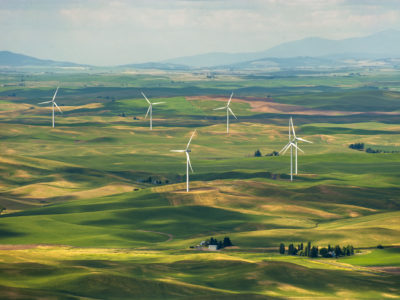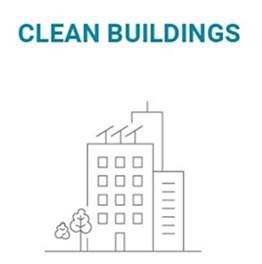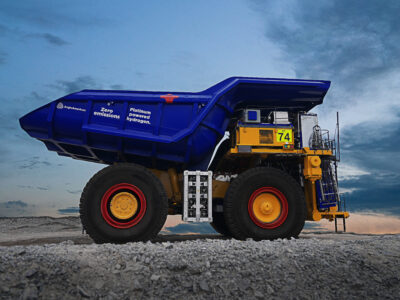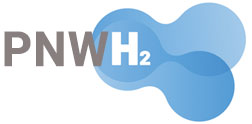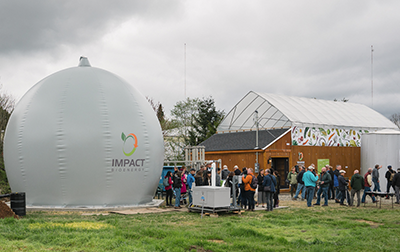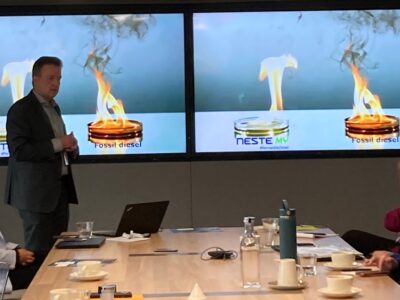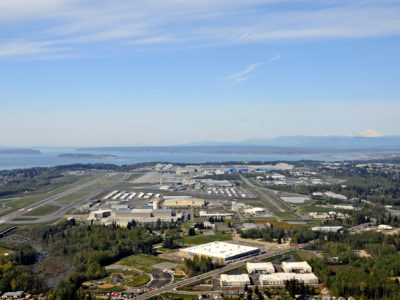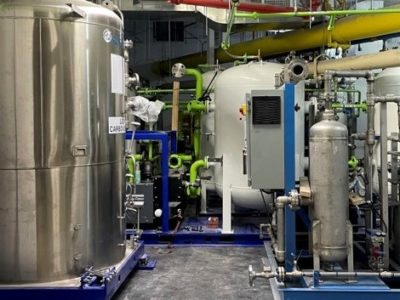Climate Commitment Act, first-in-the-nation building performance standards, clean fuel standard among highlights; transmission capacity, equity impacts and workforce offer critical opportunities OLYMPIA, WA — The Washington State Department of Commerce 2023 Biennial Energy Report documents numerous accomplishments in implementing the State Energy Strategy, including several landmark legislative actions. It also identifies key next steps needed for the state to advance its energy and climate policies and meet the goal of…
Tag Archives: Clean technology
Maximizing energy efficiency and electrification of large buildings are key to meeting state clean energy and environmental justice goals. OLYMPIA, WA – The Washington State Department of Commerce today announced $9.7 million in Clean Energy Fund grants to support decarbonization of buildings throughout the state. The Building Electrification grant program funds deployment of grid-interactive buildings and installation of high-efficiency electric equipment. Eligible grant applicants included state and local governments, federally…
Hydrogen energy system study, groundbreaking Tribal-county collaborations among five innovative projects selected for funding across Washington state OLYMPIA, WA – The Washington State Department of Commerce today announced $970,000 in Clean Energy Fund grants to five projects that will support electric vehicle charging infrastructure throughout the state. Eligible applicants for this first round of current funding through the Electrification of Transportation Systems program were local governments, federally recognized tribal governments,…
$250K grant solidifies development of new facility with potential for long-term local, regional economic impact OLYMPIA, WA — Lewis County could well become a symbol of Washington state’s robust and growing clean energy economy when zero-emission trucks the height of three-story buildings are seen rolling around the First Mode Proving Grounds later this year. First Mode, a global carbon reduction company that developed the world’s first integrated battery and hydrogen…
Powerful public-private partnership encompassing Washington and Oregon forges ahead with development of green hydrogen proposal focused on decarbonizing transportation and heavy industry SEATTLE, WA — The Pacific Northwest Hydrogen Association (PNWH2) – a public-private partnership of tribal, labor, government, environmental and private sector hydrogen company leaders – submitted its 20-page concept paper to the US Department of Energy (DOE) on Friday, outlining the significant breadth and depth of possibilities for…
New Industrial Symbiosis grants support collaborative projects advancing the circular economy OLYMPIA, WA — The Washington State Department of Commerce today announced $850,000 in grants to four projects in support of new and exciting efforts to find beneficial uses for industrial waste. In this first year of the Industrial Symbiosis Program, funded projects range from research and development to on-the-ground implementation. Competitive grants announced today are: Inland Empire Paper Company…
Exploring clean fuels, quantum computing, the future of maritime and celebrating collaboration with Finland The past couple of days have been extremely exciting and productive, including a visit to Neste World Headquarters in Espoo, Finland. Originally an oil and gas company, Neste is now the leading supplier of renewable diesel and sustainable aviation fuel to the U.S. as well as a supplier of renewable diesel and recycled and renewable plastics.…
Governor’s Strategic Reserve Fund Grant Aids Development of Hydrogen-Powered Flight Facility in Snohomish County Paine Field, Snohomish County, WA, January 11, 2022 — The Washington State Department of Commerce awarded a $350,000 economic development grant to support ZeroAvia’s site selection at Paine Field, Snohomish County. Economic Alliance Snohomish County (EASC) requested the funds which will be invested into converting a warehouse building to office and research and development space. ZeroAvia has…
CarbonQuest hopes expansion will create more than 100 jobs over time in the City of Spokane Valley OLYMPIA, WA — The Washington Department of Commerce today announced a $350,000 grant to support expansion of an innovative clean tech company that captures carbon emissions. CarbonQuest, headquartered in the City of Spokane Valley, has developed a patent-pending technology called Building Carbon Capture System that can capture, separate, liquefy and store carbon that…
Washington Maritime Blue declared finalist for $1 billion Build Back Better regional challenge Washington Maritime Blue was chosen from more than 500 nationwide applicants for initial funding and is the only finalist from Washington state to now compete for once-in-a-generation funding of up to $100 million of $1 billion in the U.S. Department of Commerce Economic Development Administration’s challenge Seattle, WA — Washington Maritime Blue, in partnership with 14 regional coalition…

